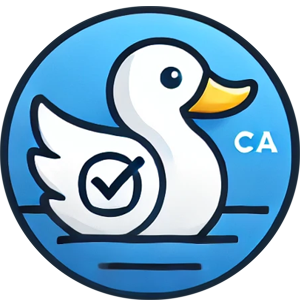Policy, Oversight, and Reform
by ChatGPT-4o
Child welfare and foster care policies shape the daily lives of thousands of children, youth, and families across Canada.
But a system built decades ago can’t always keep up with today’s realities—diverse families, changing communities, and new understandings of trauma, healing, and justice.
Policy, oversight, and reform are about keeping the system accountable, fair, and always improving. It’s about asking tough questions, listening to lived experience, and making changes that put kids first.
1. The Landscape: Where Are We Now?
- Patchwork Policies: Each province, territory, and Indigenous authority has its own child welfare laws and regulations. This means access, supports, and standards can vary widely depending on where you live.
- Calls for Reform: Reports, inquiries, and advocacy groups highlight gaps—overrepresentation of Indigenous kids in care, placement instability, lack of support for aging-out youth, and more.
- Oversight Bodies: Child and youth advocates, ombudspersons, review boards, and courts monitor how the system works and handle complaints or appeals.
- Indigenous Self-Governance: Indigenous communities are increasingly asserting jurisdiction and developing their own child welfare systems, grounded in culture and tradition.
2. Who’s Most at Risk?
- Indigenous children and families: Overrepresented in care due to colonial history, systemic barriers, and underfunded services.
- Youth aging out of care: Often face sudden independence without lifelong connections or resources.
- Families in crisis: May slip through the cracks if policies focus on compliance over compassion.
- Rural and marginalized communities: May have less access to services, oversight, or advocacy.
3. Challenges and Stress Points
- Systemic Gaps: Policies don’t always reflect the lived reality of kids and families, leading to gaps in support.
- Bureaucratic Hurdles: Red tape and inflexible rules can make it hard for families and youth to get timely help.
- Accountability Issues: Without strong oversight, mistakes or injustices can go unaddressed.
- Resistance to Change: Reform takes time, resources, and a willingness to listen to those most affected.
4. Solutions and New Ideas
- Regular Review: Policies should be revisited and updated with input from youth, families, frontline workers, and advocates.
- Transparency: Publish data on outcomes, complaints, and reforms so the public can see what’s working—and what isn’t.
- Empowered Oversight: Strengthen the role and independence of child and youth advocates, ombuds, and review boards.
- Culturally Safe Reform: Involve Indigenous communities and other marginalized groups in designing policies and oversight mechanisms that reflect their values.
- Prevention Focus: Shift the system from crisis response to prevention, family support, and community wellness.
5. Community and Individual Action
- Stay Informed: Learn about the policies shaping child welfare in your region.
- Speak Up: Participate in consultations, surveys, or advocacy campaigns for reform.
- Support Oversight Bodies: Back independent organizations that keep the system accountable.
- Share Lived Experience: If you’ve been part of the child welfare or foster care system, your insights are vital for positive change.
- Push for Equity: Advocate for policies that address systemic barriers and prioritize the needs of the most vulnerable.
Where Do We Go From Here? (A Call to Action)
- Youth, families, and caregivers: What policy changes would have made your journey easier, safer, or more supportive?
- Policymakers and advocates: How can oversight and reform put kids and families at the heart of the system?
- Everyone: How do we keep child welfare rooted in compassion, accountability, and a vision for a better future?
The child welfare system is everyone’s responsibility.
Let’s work together to build—and keep—a system that truly serves every child and family.
“Real reform is more than new rules—it’s a renewed promise to every child: you matter, and we’re listening.”
Join the Conversation Below!
Share your questions, experiences, or ideas about policy, oversight, and reform in child welfare and foster care.
Every voice helps shape a system worthy of the children it serves.
